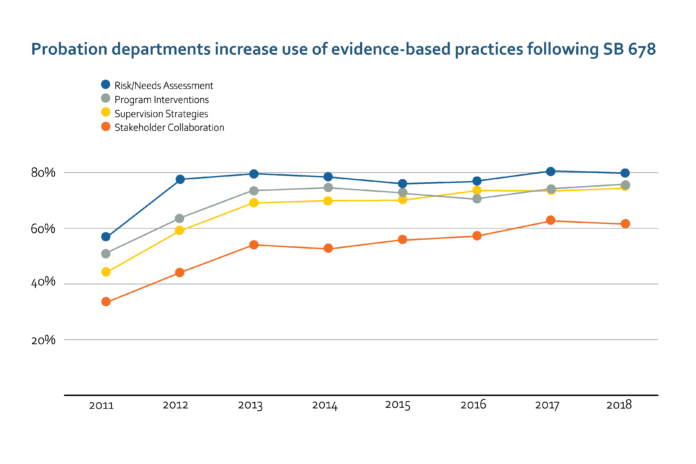Grattet’s research is “first of its kind,” “never been done before”
UC Davis Sociology Department Chair and Professor Dr. Ryken Grattet recently published innovative research on changes to probation and prison populations in California since Senate Bill 678 passed in 2009.
In cooperation with UC Berkeley Assistant Professor Mia Bird, Grattet’s report assesses the impact of SB 678 on California probation operations since the bill became law in 2009.
According to Grattet’s report, the California Community Corrections Performance Incentives Act has “reduced prison population, reduced prison revocation (returning to prison after probation), reduced state correctional expenditures, increased funding for probation departments, transformed the culture of probation departments and led to substantial increases in the use of evidence-based practices, and did not lead to increases in crime rates.”
The study primarily focuses on the immediate policy impacts of SB 678. Impacts were measured by changes in prison population and analysis of the evolving culture of probation work.
“Prior to the reform, the [probation officer] profession was more focused on law enforcement activities,” Grattet said. “What we’ve seen and documented in the aftermath of the reform is a gradual increase in the what we call the ‘social work’ parts of the job.”
Grattet’s research was commissioned by the California Probation Resource Institute (CaPRI).
Brian Richart, the president of the Chief Probation Officers of California organization, explained the impact of Grattet’s research on California law enforcement practices.
“There is the accountability piece and there is the rehabilitative piece to what we do,” Rickart said. “Probation officers are a synthetic blend of a variety of disciplines.”
CaPRI commissioned Grattet’s research on the effects of SB 678 in order to understand which procedures and operations are most effective in achieving California’s prison reform goals.
“The focus of the legislation 10 years ago was to reduce the prison population by providing a meaningful alternative that could positively impact crime trends in California as well,” Richart said. “Given that California tends to lead more than follow in probation trends, we thought it would be best to focus on probation trends in California from a research perspective. We want to build some infrastructure and build some capacity for California to do that.”
A press release published on April 29 served to inform the community about the research findings. Richart explained that the goal of SB 678 and CaPRI is to educate and train law enforcement and politicians about effective “evidence based practices” regarding prison reform.
“We conducted our press release last week to let the world know that their paper existed,” Richart said. “We want to serve to educate the industry and policymakers so that they can see what works and make well informed policy decisions moving forward.”
SB 678 was the first of many additional California prison reforms and realignment goals.
“California is in many ways, leading the country in terms of downsizing their reliance on prison and jails,” Grattet explained. “There’s still a long way to go but this particular piece of legislation was in many ways the moment where the reform really kicked off.”
Richart noted that Grattet and Bird’s research is truly unique.
“[It is the] first of its kind, never-been-done-before in California,” Richart said. “[They are] on the leading edge of something new.”
Written by: Hannah Blome — campus@theaggie.org









